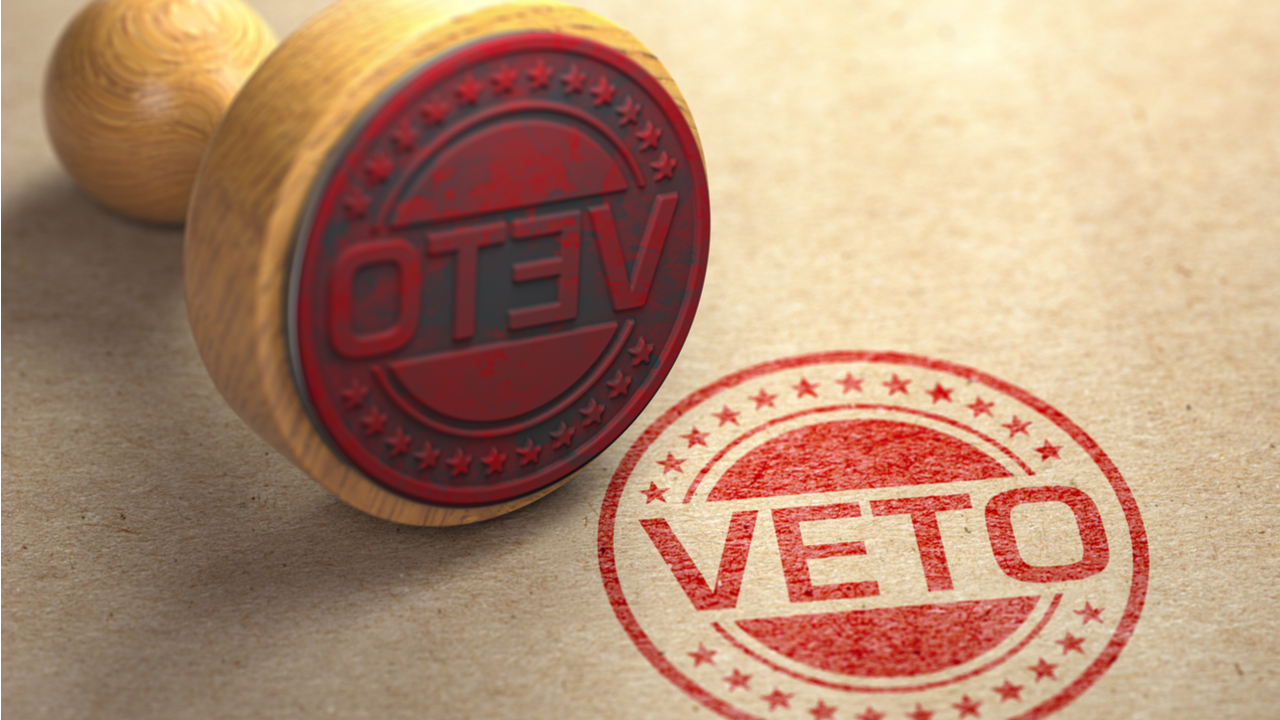by Sergio Goschenko
Laurentino Cortizo, president of Panama, has exercised his veto powers to make a series of objections to the recently approved cryptocurrency law. The observations of the president only touch on certain articles and do not affect the law in its entire scope. However, these articles of the bill will have to be re-discussed, taking into account the observations of Cortizo.
Laurentino Cortizo, the president of Panama, has vetoed the recently approved cryptocurrency law, sending it back to the National Assembly to be discussed. The veto was a partial one, with Cortizo having second thoughts about the legality of several, but not all, articles in the approved bill.
The announcement was made by Gabriel Silva, one of the proponents of the law, on social media. Silva criticized the decision taken by Cortizo, stating it was :
A lost opportunity to generate jobs, attract investment and incorporate technology and innovation in the public sector. The country deserves more opportunities and also financial inclusion.
Silva also explained he was studying the needed changes for the bill and that it would be going now to two committees of the National Assembly — the Government Commission and the Trade Commission. After this, it will have to be discussed twice, again. However, he did not indicate which articles of the law had been vetoed by Cortizo.
The so-called crypto law, which was the result of an amalgamation of two different cryptocurrency law projects, defined a blockchain-based ID system and also the use of blockchain technologies to improve the transparency of public spending.
The veto of a part of the law by Cortizo’s team was not a total surprise. The president of Panama had expressed concerns about the scope and some of the definitions of the law. In an interview given in May, when asked about the approval of the crypto law, Cortizo stated:
If I’m going to answer you right now with the information that I have, which is not enough, I will not sign that law.
Cortizo stated that unresolved money laundering issues would prevent the law from being sanctioned, as the country maintains a difficult relationship with the Financial Action Task Force, which has included it in its gray list along with countries like the Philippines, Yemen, and Turkey. However, he also pointed out that the bill was an innovative and good law.
What do you think about the crypto law and its veto in Panama? Tell us in the comments section below.
Sergio is a cryptocurrency journalist based in Venezuela. He describes himself as late to the game, entering the cryptosphere when the price rise happened during December 2017. Having a computer engineering background, living in Venezuela, and being impacted by the cryptocurrency boom at a social level, he offers a different point of view about crypto success and how it helps the unbanked and underserved.
Image Credits: Shutterstock, Pixabay, Wiki Commons
Disclaimer: This article is for informational purposes only. It is not a direct offer or solicitation of an offer to buy or sell, or a recommendation or endorsement of any products, services, or companies. Bitcoin.com does not provide investment, tax, legal, or accounting advice. Neither the company nor the author is responsible, directly or indirectly, for any damage or loss caused or alleged to be caused by or in connection with the use of or reliance on any content, goods or services mentioned in this article.
Ripple CEO: SEC Lawsuit Over XRP ‘Has Gone Exceedingly Well’
The CEO of Ripple Labs says that the lawsuit brought by the U.S. Securities and Exchange Commission (SEC) against him and his company over XRP “has gone exceedingly well.” He stressed: “This case is important, not just for Ripple, it’s … read more.
Following a Brief Fee Spike, Gas Prices to Move Ethereum Drop 76% in 12 Days
Transaction fees on the Ethereum network are dropping again after average fees saw a brief spike on April 5 jumping to $43 per transfer. 12 days later, average ether fees are close to dropping below $10 per transaction and median-sized … read more.
Check all the news here

